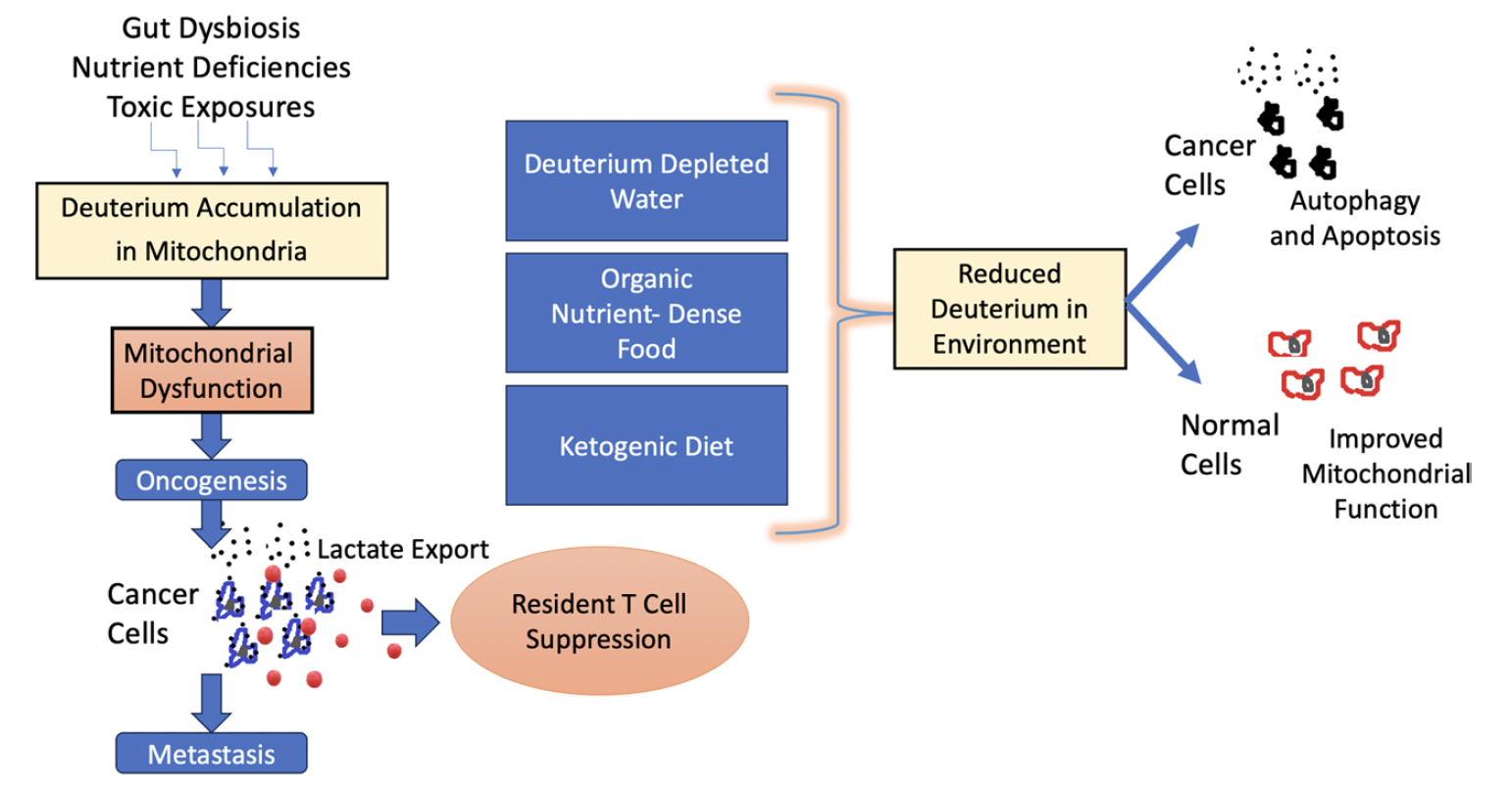January 17, 2025 & January, 2026
Explaining deuterium-depleted water as a cancer therapy: a narrative review
By Anthony M. Kyriakopoulosa and Stephanie Seneff
Human metabolic processes minimize the amount of deuterium in mitochondrial water, because it causes a dysfunction in mitochondrial ATPase pumps, leading to excessive reactive oxygen species (ROS) and loss of ATP production. Mitochondrial dysfunction is a characteristic feature of cancer and many other diseases.
Tumorigenesis involves a metabolic switch that supports increased cellular deuterium levels, decreasing the deuterium burden overall in the organism. Strong clinical evidence supports deuterium-depleted water (DDW) as an anticancer treatment.
![]()
Above is a schematic of the processes by which excess deuterium in mitochondria can lead to a change in metabolic policy toward oncogenesis, proliferation and metastasis, and how reduced deuterium intake can reverse these processes, leading to recovery from cancer.
DDW may not be toxic to the tumor cells per se, but rather cancer cells are programmed to respond to low deuterium by suppressing proliferation and inducing apoptosis. DDW induces complex metabolic changes in tumor cells that interfere with proliferation and promote autophagy and apoptosis.
DDW may restore oxidative phosphorylation and result in an accumulation of ROS in cancer cells, which results in accelerated aging and shrinkage of the tumor, due perhaps to deficient antioxidant defenses and impaired ability to repair damaged DNA.
Explaining deuterium-depleted water as a cancer therapy: a narrative review
By Anthony M. Kyriakopoulosa and Stephanie Seneff
Human metabolic processes minimize the amount of deuterium in mitochondrial water, because it causes a dysfunction in mitochondrial ATPase pumps, leading to excessive reactive oxygen species (ROS) and loss of ATP production. Mitochondrial dysfunction is a characteristic feature of cancer and many other diseases.
Tumorigenesis involves a metabolic switch that supports increased cellular deuterium levels, decreasing the deuterium burden overall in the organism. Strong clinical evidence supports deuterium-depleted water (DDW) as an anticancer treatment.

Above is a schematic of the processes by which excess deuterium in mitochondria can lead to a change in metabolic policy toward oncogenesis, proliferation and metastasis, and how reduced deuterium intake can reverse these processes, leading to recovery from cancer.
DDW may not be toxic to the tumor cells per se, but rather cancer cells are programmed to respond to low deuterium by suppressing proliferation and inducing apoptosis. DDW induces complex metabolic changes in tumor cells that interfere with proliferation and promote autophagy and apoptosis.
DDW may restore oxidative phosphorylation and result in an accumulation of ROS in cancer cells, which results in accelerated aging and shrinkage of the tumor, due perhaps to deficient antioxidant defenses and impaired ability to repair damaged DNA.

